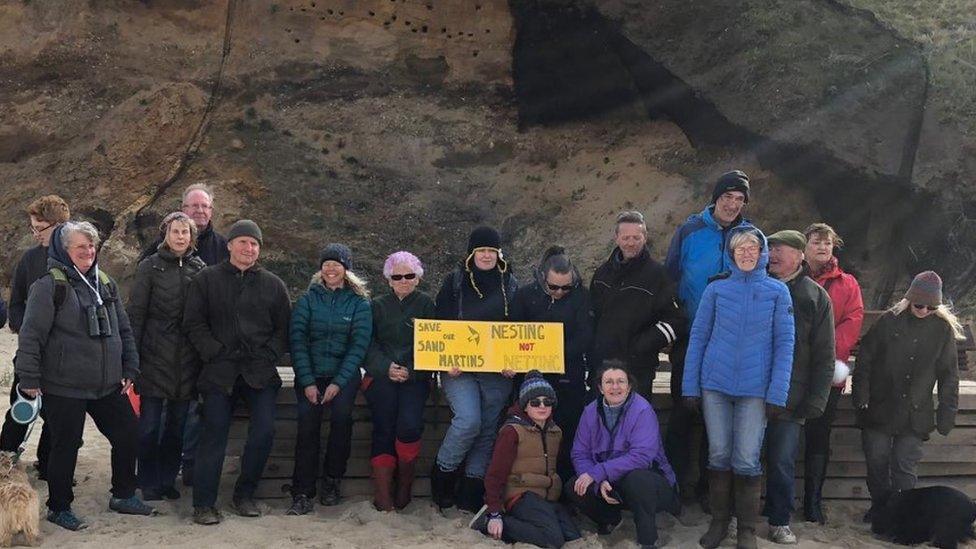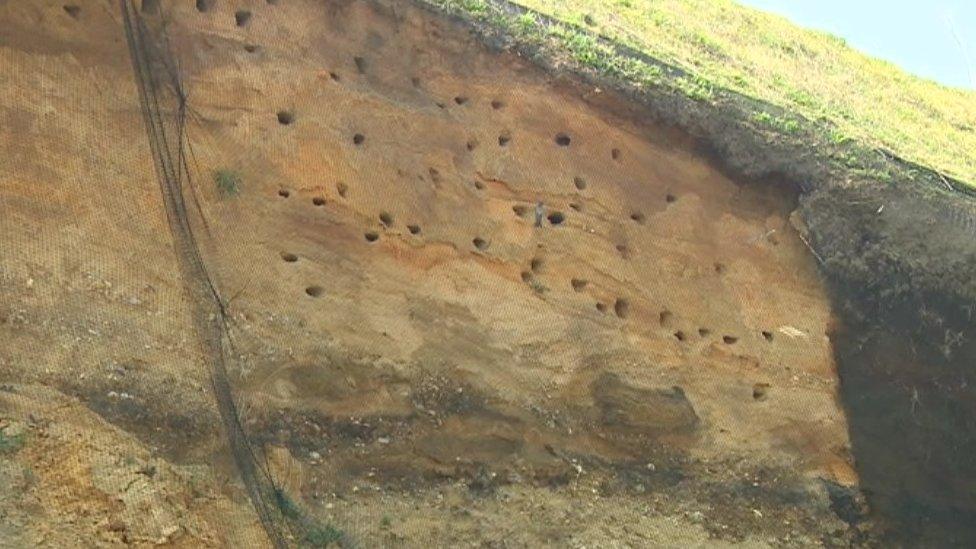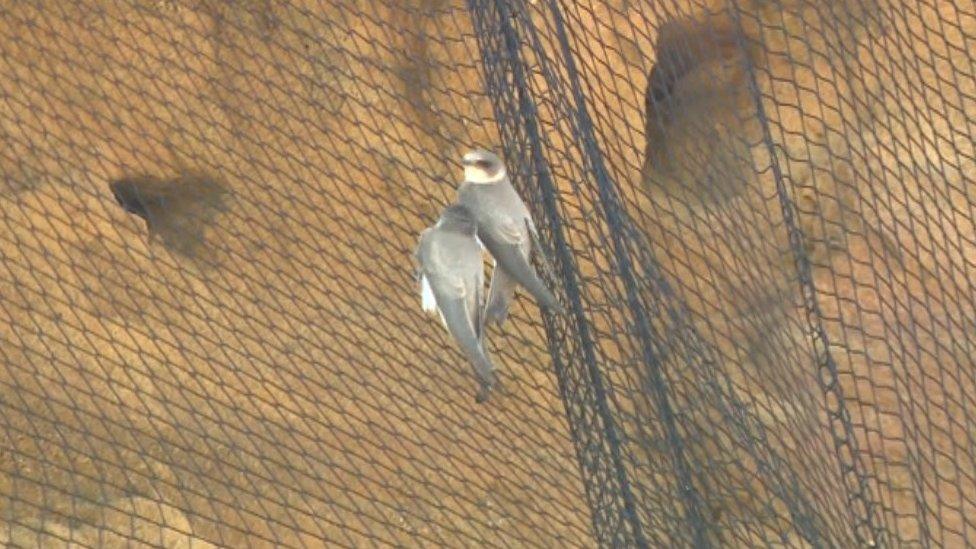RSPB outcry leads to anti-bird nets removal plan for Norfolk cliffs
- Published
The nets prevent the birds from digging tunnels into the cliff to nest
Anti-bird netting is to be removed from cliffs after criticism from wildlife groups including the RSPB.
North Norfolk Council put the nets up at Bacton on 18 March to encourage birds to nest further along the coast.
On Monday, Jeff Knott, regional director of RSPB, said there was a risk of birds "dying" if they got stuck.
The council said after talks with the RSPB the upper levels of netting are to be removed over the next 24 hours, although some netting will remain.
"Minimum levels [of netting] will be retained to assist in progressing with this critical project to protect people's homes and national infrastructure," said a council spokesman.
A protest group Save the Bacton Sand Martins has been set up on Facebook and a demonstration was held at the cliffs at about 17:00 BST.

Campaigners staged a protest as the cliffs
A spokesman for the campaigners said there was "public disgust" at the netting and called on the council to change its policy in "the interests of the long-term survival of the sand martins and all other cliff animals who can be injured, trapped and displaced by the netting".
Protester Juli Kette-Brodie said: "It is unbelievable the strength of feeling in relation to this. It is not just the sand martins, the whole eco-system is affected by this.
"It has been put up against RSPB suggestions."
The RSPB said it was pleased some of the netting been removed, but more action was needed to help sand martins and it would be meeting the council for discussions this week.
"This will cover our outstanding concerns regarding the 1.3km length of the netted cliff face that will remain," a spokesman for for the bird charity said.
"We will ask the council to reduce this to 50m maximum and keep to a height of seven metres."
He said the RSPB was also urging that a finer mesh is used, which birds cannot get trapped in.
He said at the present there has been no evidence of birds dying.

The RSPB said it had reached out to the council to offer advice
The Norfolk Wildlife Trust had earlier tweeted and expressed its concerns that "advice to protect sand martins has seemingly not been followed at the cliffs".
Allow X content?
This article contains content provided by X. We ask for your permission before anything is loaded, as they may be using cookies and other technologies. You may want to read X’s cookie policy, external and privacy policy, external before accepting. To view this content choose ‘accept and continue’.
Norman Lamb, Liberal Democrat MP for North Norfolk, said: "I am confused about how we got to this point. It has been years in the planning... and something has been done which appears to be against the RSPB advice.
"We have to take into account these birds and can't ride roughshod over them."
Earlier a council spokesman said the anti-erosion landscaping scheme was "designed to protect hundreds of homes in Bacton and Walcott, and the critical infrastructure of Bacton Gas Terminal".
He added: "It has been subject to full environmental impact assessment, planning permission and marine licence applications."
- Published8 April 2019
